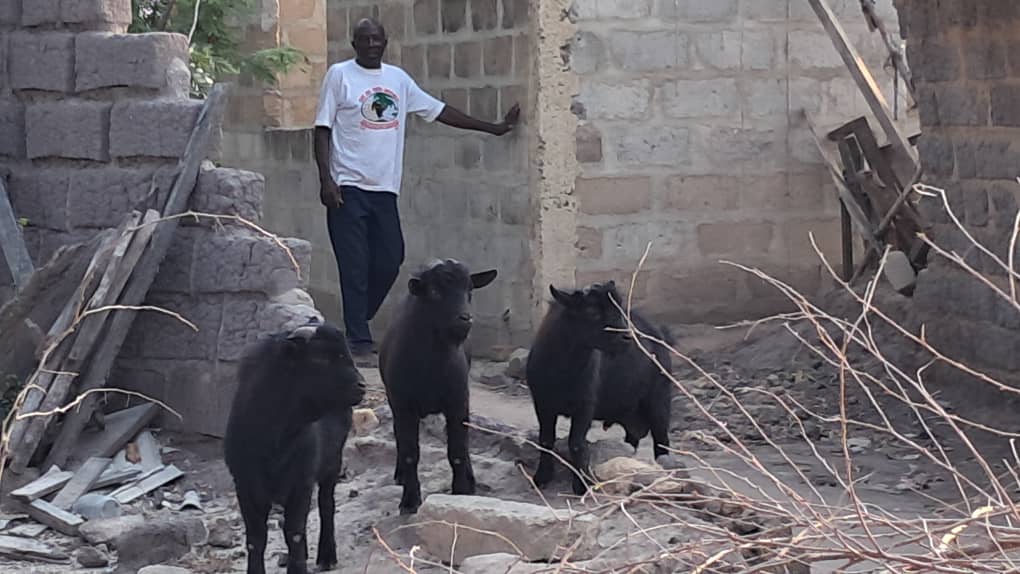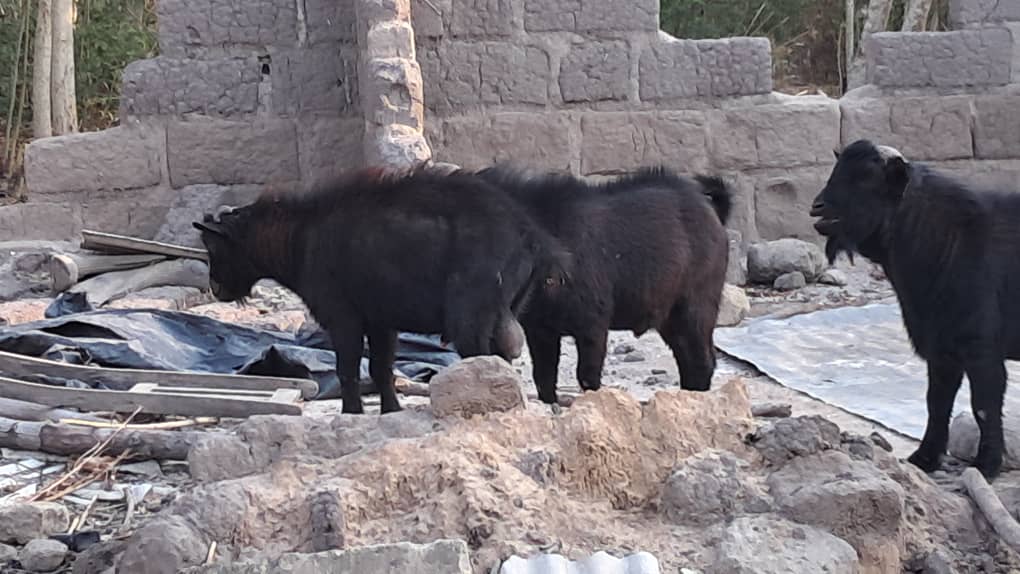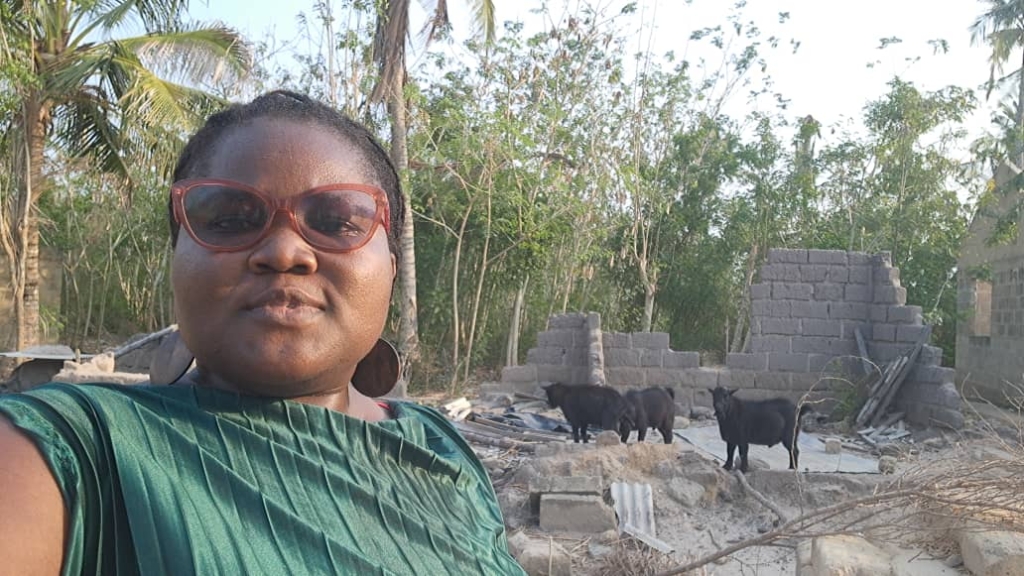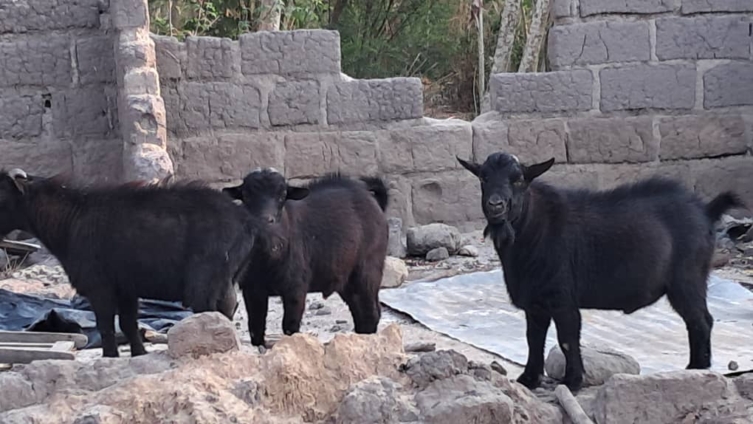In the vast Keta Lagoon, nestled within the Anloga Municipality, lies Bomigo, an island steeped in mystery and ancient traditions.
Known for its stunning natural beauty, the island is home to rituals, sacred laws, and a spiritual presence that has shaped the lives of its people for generations.
But beneath its scenic landscape, Bomigo is at a crossroads, grappling with the challenge of maintaining its sacred heritage while adapting to the pressures of modernity.

At the heart of Bomigo’s mystique are the black male goats, creatures that hold a deep connection to the island's goddess, Mama Bomi.
These enigmatic animals, which have no visible female counterparts, are believed to carry out divine missions, swimming across the lagoon, embarking on journeys to northern Ghana, and returning to the island.
To the people of Bomigo, these goats are not mere curiosities but living symbols of the goddess's power and influence, revered and protected at all costs.
Bomigo operates under strict sacred laws that govern nearly every aspect of life. These laws dictate who may step foot on the island, what can be done, and how life and death must unfold.
Women on their menstrual cycle are forbidden from visiting, and no one is allowed to give birth on the island. The spilling of human blood, whether in conflict or accident, is forbidden, and the dead are never buried on Bomigo. For centuries, the island's inhabitants lived by these laws, and the community thrived.

However, as modern influences have begun to encroach upon Bomigo’s traditions, many of these sacred practices have eroded, bringing with them suffering, sickness, and poverty, according to the island's elders.
Today, Bomigo's inhabitants face the harsh realities of neglect, as they struggle without basic amenities like electricity, drinking water, or healthcare. The people rely on lanterns and borrowed generators, and pregnant women must travel dangerous waters to seek medical assistance.
The road leading to the island, built with the help of former MP Clemence Kofi Humado, remains the sole connection to the outside world, yet it is not enough to alleviate the island’s isolation.
The people of Bomigo continue to live in the shadow of their ancestors’ legacy, but the question looms—how much longer can they hold on to the ancient ways that have sustained them for so long?

As the mysteries of Bomigo endure, its future hangs in the balance. Will the spirits of the past continue to protect the island, or will the tide of modernity and neglect wash away its once-sacred traditions? Only time will tell, but for now, the island’s black goats still roam the land, the lagoon still whispers its secrets, and the people of Bomigo continue to hold on—just as their ancestors did when they first heard the words, Bomi gɔ.
Latest Stories
-
Community Digital Fair inspires a new generation of digital thinkers in Ningo-Prampram
1 hour -
Today’s Front pages: Thursday, June 19, 2025
1 hour -
We’re monitoring all aspirants in the race – Justin Kodua declares
2 hours -
We’re addressing our internal issues – Justin Kodua
2 hours -
Works and Housing Minister inaugurates State Housing Company Board, two others
2 hours -
Opoku-Agyemang engages NDC leadership
2 hours -
Justin Kodua attributes NPP’s 2024 loss to global wave against incumbents
2 hours -
NPP presidential primaries not skewed to favour any candidate – Justin Kodua
2 hours -
Parliament takes major step towards strengthening economic governance
2 hours -
IFC urges banks to increase lending for sustainable buildings
2 hours -
‘Be measured in commenting on… issues,’ Supreme Court nominee urges chiefs on bench
2 hours -
Governor Asiama urges banks to develop customer-centric products
3 hours -
Samini reveals Mahama and judiciary actions make him a happy Ghanaian
3 hours -
Ghana Armed Forces set to employ thousands soon – Defence Minister announces
3 hours -
Telecel Ghana Foundation donates 100 laptops to KNUST to support deprived students
3 hours

